InterNations has officially kicked off the big Sustainability Initiative with Feel Good Manager Denise at the helm. Read more about our goals for 2020 to make our company an environmentally friendly employer.
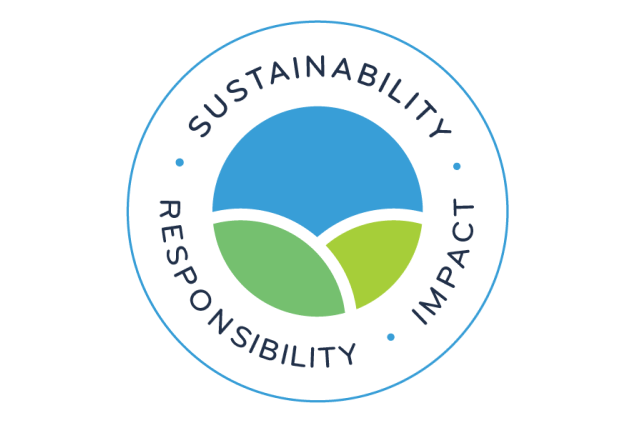
Tuesday afternoon: Snack time at the InterNations offices in Munich. Everyone’s waiting for this week’s Happy Helpers — the interns tasked with running errands — to return from their trip to the neighboring supermarket with bags full of goodies that will give us an energy boost for the rest of the day. As much as the InterNations Team loves the weekly snacks, our favorite candies, chocolate bars, and trail mixes also have negative side effects. And no, I’m not talking about the risk of piling on some extra pounds. The snacks also cause a huge amount of plastic waste, up to an estimated 240 liters per month — the unfortunate, but far from unusual consequence of living in a throwaway society.
No wonder that plastic pollution is a hot topic when it comes to environmental issues. According to the National Geographic, as much as eight million tons of plastic waste end up in the oceans every year. It spoils my appetite slightly to imagine some of my candy wrappers contributing to the infamous Great Pacific Garbage Patch, and quite a few of my fellow team members would probably feel the same way. In the InterNations Barometer 2019, our annual employee satisfaction survey, more than 75% of respondents said that corporate social responsibility (e.g. regarding sustainability) was important, or even very important, to them.
In short, the times, they need a-changing. And here at InterNations, they soon will.
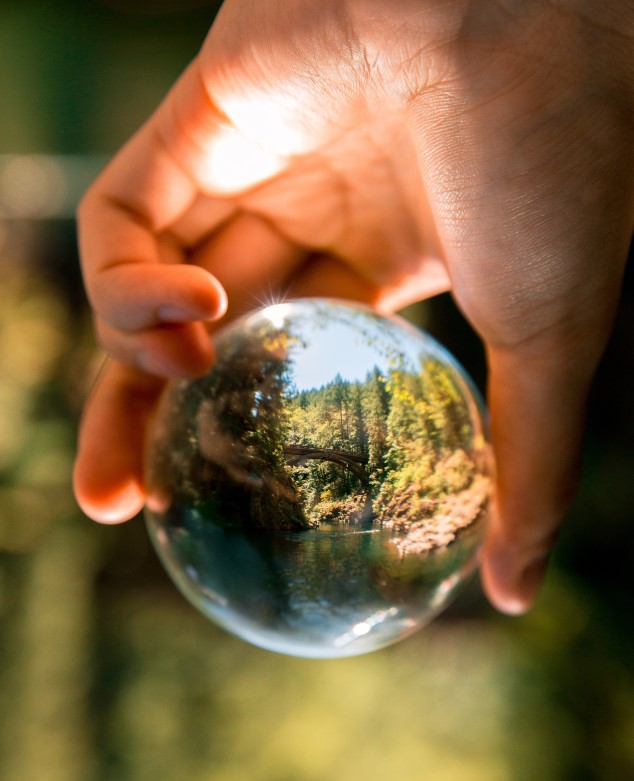
Her Passion: Protecting the Environment
We have officially kicked off our Sustainability Initiative with Feel Good Manager Denise at the helm. For Denise, taking responsibility for the initiative is both a professional duty and a personal passion. Everyone who remembers her fervent support for various environmental causes (e.g. the recent regional petition Biodiversity and the Beauty of Nature) can attest to that.
“Sustainability has been important to me for as long as I can remember,” she says. “At some point, I realized that every decision I make, such as what to buy or not to buy, might have long-term consequences for the environment.”
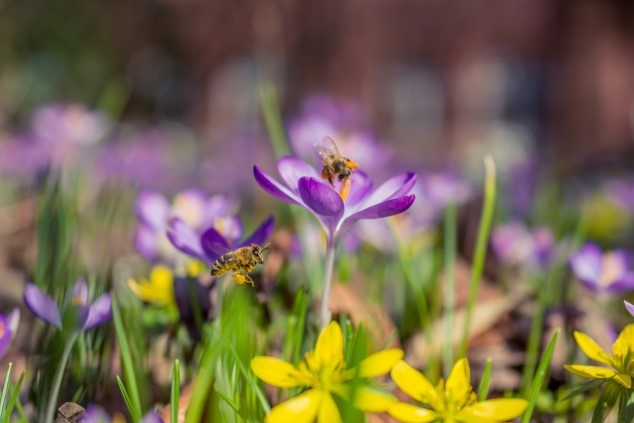
The sustainability issue was already at the back of her mind when Denise started working at InterNations, but her various responsibilities — from supply management to organizing team events — kept her far too busy at first. Over the past few years, she has nevertheless managed to introduce several measures to make InterNations a more environmentally friendly employer, such as switching the entire Munich office to Polarstern, a renewable utility provider, ordering office supplies made from recycled materials, and making sure that the coffee beans that sustain our caffeine habit are organically sourced.
In 2019, the year when climate activist Greta Thunberg was featured on the cover of Time magazine, sustainability soon became a top priority for many organizations — including InterNations. The topic moved up quickly on the company agenda, and Denise got the full support from our founders and co-CEOs for the initiative. As a first step, the “SustainaBillies” workshop during last year’s team trip confirmed that the InterNations Team was mostly aligned with what Denise, Malte, and Philipp already had in mind.
By now, sustainability has become a company-wide initiative with three major goals for 2020.
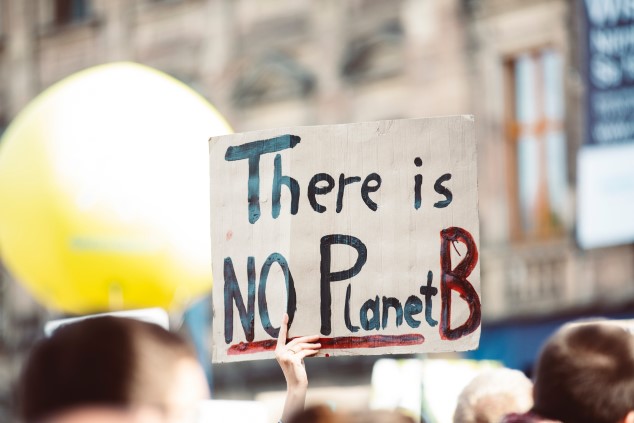
Our Ambition: Becoming Carbon Neutral by the End of 2020
Our most important and most ambitious goal is to become a carbon-neutral company by the end of the year. InterNations has recently joined Leaders for Climate Action, an initiative launched in August 2019 by a hundred digital entrepreneurs from Germany.
In their own words, these founders and managing directors of various startups, corporations, and agencies are “united by the will to counter the climate crisis with clear demands and our own actions”. They are in favor of expanding the domestic market for renewable energies, as well as creating opportunities for the German economy to take a leading role in the green-tech and clean-tech sectors.
As for our own actions, Denise is currently busy making some complicated calculations to estimate our corporate carbon footprint. To work out how much carbon dioxide InterNations produces annually, she needs to take into account a wide range of factors: business travels, our office situation (e.g. heating, lighting, insulation), our internal servers for the in-house IT infrastructure, what it takes to keep the InterNations platform up and running, and many more. This step can be a bit tricky.
InterNations has therefore booked the services of Climate Partner, a Munich-based environmental consulting agency, which offers a software tool to help us correctly calculate our carbon footprint. Figuring out the footprint created by our office’s electricity consumption, for example, doesn’t just require us to know the average consumption per year. It also means finding out which countries the utility provider sources the electricity in, what kind of energy sources they use, and what their respective emission intensity (i.e. their CO2 production per kwh) is.
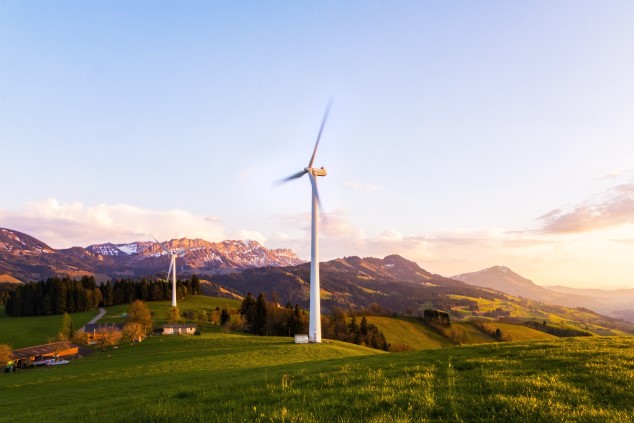
As time-consuming and technical as this might sound, it’s definitely worth it. Only when we have a clear picture of where our carbon footprint comes from can we start reducing emissions. All team members will need to change their behavior as a result. We may have to come up with a more restrictive policy for business travels and rethink how we use energy for heating and lighting at the office.
Last but not least, even a digital product such as InterNations requires tangible resources in the form of server rooms and data centers. According to Nature magazine, all data centers worldwide gobble up over 200 Twh of electricity every year. For the non-math nerds among us, “Twh” is short for one terawatt hour or one billion kilowatt hours. So, two hundred terawatt hours are the same as 200,000,000,000 (two hundred billion) kilowatt hours. Yes, that’s a two followed by eleven zeros, or in less abstract terms, more than the annual national energy consumption of Iran. This staggering figure is probably the best argument why these enormous information factories should be running on renewable energy.
The last part of our new carbon-neutral policy involves offsetting emissions. “Of course, this shouldn’t be today’s ‘abuse of indulgences’,” as Denise points out. “It’s not just an easy way of spending money to get rid of a guilty conscience.”
It’s unfortunately impossible for any company to reduce its actual carbon emissions to zero without going out of business altogether. It is, however, vital to offset what we cannot reduce by investing in trustworthy and efficient climate-action projects. Offsetting carbon emissions will factor into our corporate budget from 2021 onward.
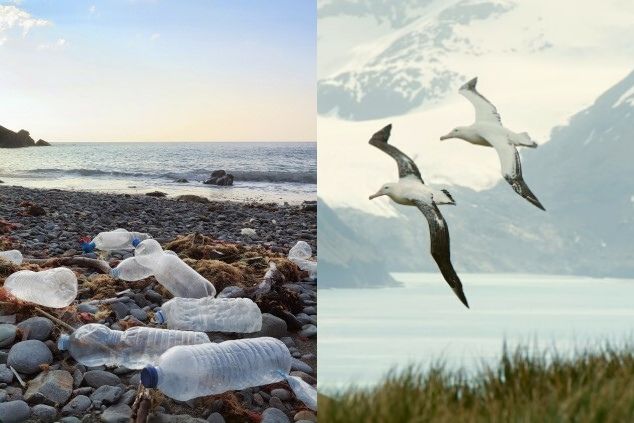
Our Mission: Avoiding Plastic Waste
Unsurprisingly, fighting plastic pollution is the next big item on our sustainability agenda. Tackling this problem goes beyond the issues outlined in the introduction.
Rather ironically, the albatross — the bird in our company logo — isn’t just the symbol of InterNations and the pioneering expat spirit, it also represents what plastic pollution does to wildlife and the environment. Maybe you’ve already seen some disturbing images of dead seabirds that perished from ingesting too much plastic waste. There are far worse places even than the Great Pacific Garbage Patch where that bottle cap or candy wrapper could end up, such as in the stomach of some hapless albatross.
To help save our beloved mascot “Al” the Albatross, Denise has already introduced zero-waste catering at in-house workshops and seminars. A more environmentally friendly alternative to our Tuesday snacks is bound to follow. Of course, office-supply management goes far beyond providing hungry colleagues with plastic-free, plant-based, and organic munchies to nibble on. It also involves finding alternatives to throwaway plastic packaging in general, such as refillable options, smart and reusable systems, or recyclable materials.
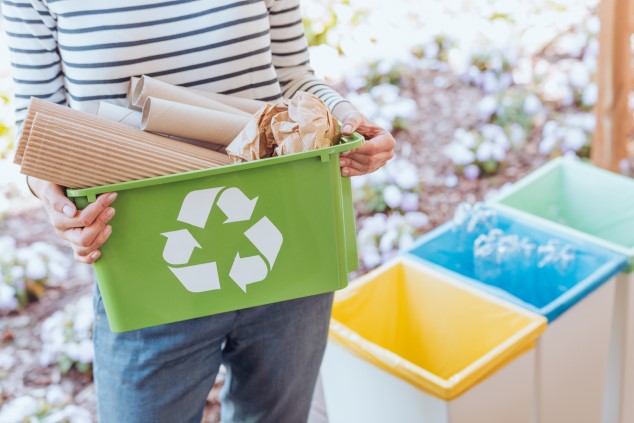
Moreover, we also need to find a workaround solution for the recycling dilemma at our Munich offices. Right now, there’s no recycling bin for plastic waste on the premises, as the weekly garbage collection service separates only glass and paper from the rest. What we’re going to do about plastics, as well as organic waste, remains to be seen.
Team-building activities and company events also produce a considerable amount of plastic pollution, especially when it comes to catering and decorations. That’s why Denise will focus on providing alternatives to plastic products at our team events as well. Another item on her lengthy to-do list: researching eco-friendly venues that align with the values of InterNations.
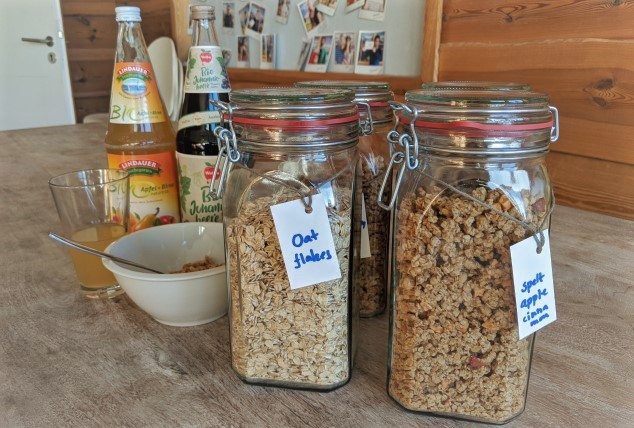
Our Inspiration: Leading a Sustainable Life
Spreading our new sustainable values, raising awareness, and providing more information is what the third part of this year’s initiative is all about. The topic is now part of our Newcomers’ presentation for all new team members, and Denise will also give regular updates at our monthly team meetings.
Those looking for more information and inspiration can follow our corporate #sustainability channel on the instant-messaging service Slack. Some updates are the fun kind, for example, the snapshots from the recent Yoga for Biodiversity session in honor of World Wildlife Day on 3 March, where the participants could learn fancy new poses named after endangered animals such as the dolphin or the eagle.
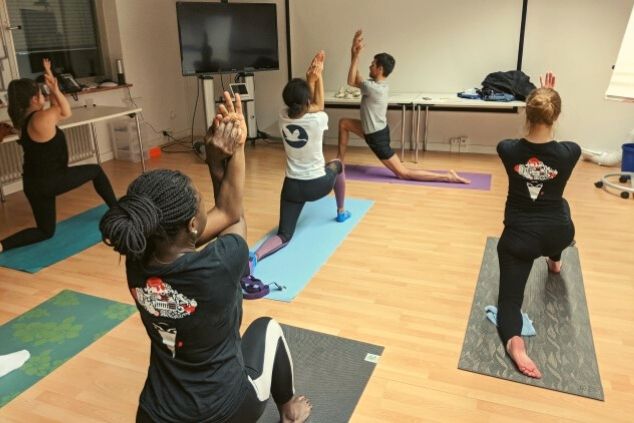
Other info posted on Slack includes useful facts to help us lead a more sustainable life: which fruits and veggies are in season right now (Spoiler: In Germany, it’s mostly cabbages and kraut.), where the nearest recycling center is located, and where team members can find food-sharing resources in their neighborhood.
In the near future, we hope to offer more in-depth workshops and trainings dedicated to similar topics. Denise thinks that sustainability should be featured in our Long Live Learning series on a regular basis. It would also be a great idea to revive the format of the Brown Bag Lunches for slightly shorter and more casual sessions during office hours.
Unlike our duties at work, protecting the environment is a never-ending task, and it doesn’t begin or end at the office. Ideally, Denise and her taskforce of six “SustainaBillies” will inspire us to change our personal behavior too.
“There’s always more that you could do to support sustainability,” Denise says. “The list is endless, and I already have plenty of ideas for 2021.”
Let’s all get started now!
Image credit: InterNations / iStockphoto / Pexels / Pixabay
[…] first blog post on the Sustainability Initiative outlined the three major goals InterNations has set for 2020: […]